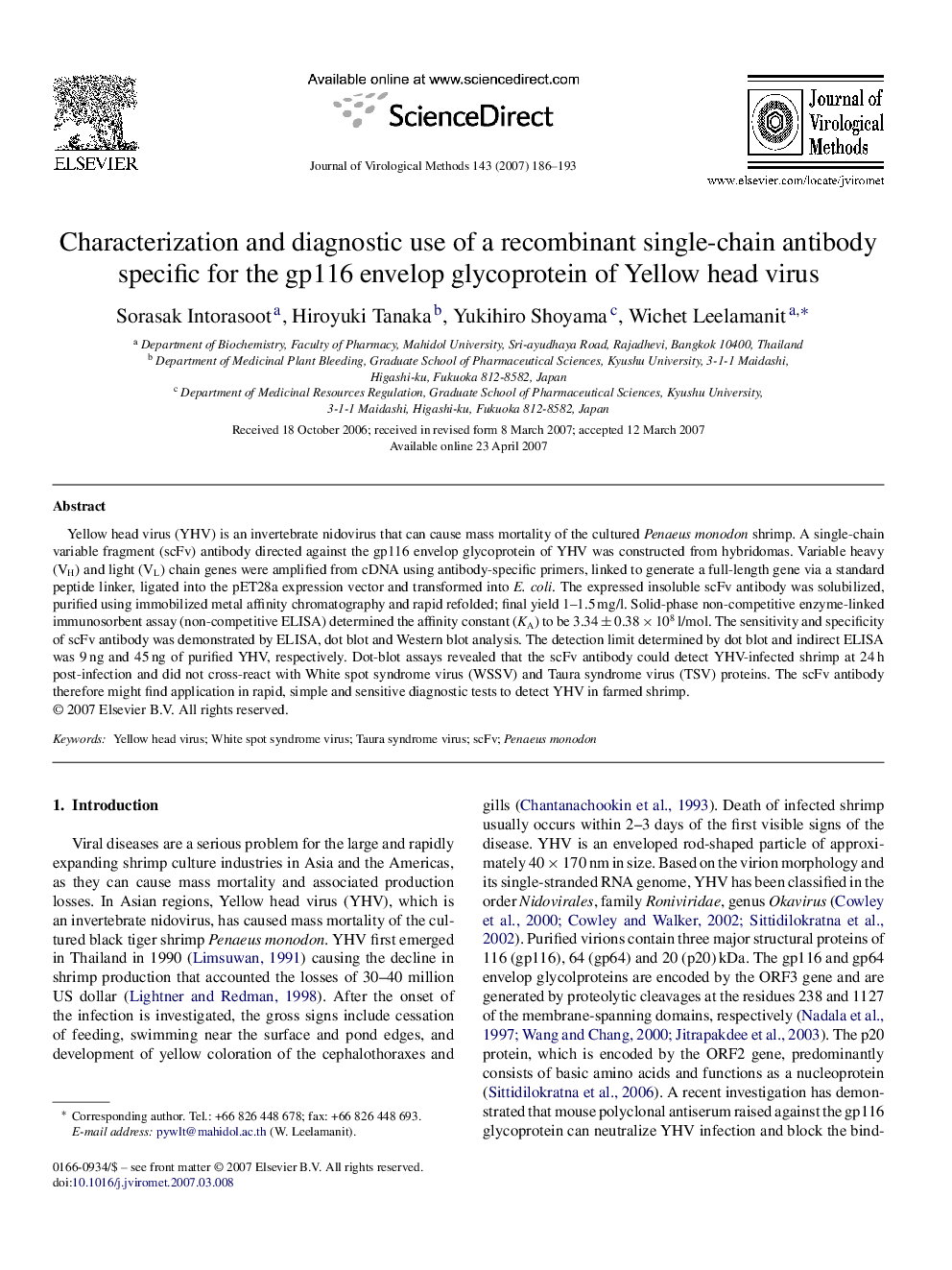| Article ID | Journal | Published Year | Pages | File Type |
|---|---|---|---|---|
| 3408073 | Journal of Virological Methods | 2007 | 8 Pages |
Yellow head virus (YHV) is an invertebrate nidovirus that can cause mass mortality of the cultured Penaeus monodon shrimp. A single-chain variable fragment (scFv) antibody directed against the gp116 envelop glycoprotein of YHV was constructed from hybridomas. Variable heavy (VH) and light (VL) chain genes were amplified from cDNA using antibody-specific primers, linked to generate a full-length gene via a standard peptide linker, ligated into the pET28a expression vector and transformed into E. coli. The expressed insoluble scFv antibody was solubilized, purified using immobilized metal affinity chromatography and rapid refolded; final yield 1–1.5 mg/l. Solid-phase non-competitive enzyme-linked immunosorbent assay (non-competitive ELISA) determined the affinity constant (KA) to be 3.34 ± 0.38 × 108 l/mol. The sensitivity and specificity of scFv antibody was demonstrated by ELISA, dot blot and Western blot analysis. The detection limit determined by dot blot and indirect ELISA was 9 ng and 45 ng of purified YHV, respectively. Dot-blot assays revealed that the scFv antibody could detect YHV-infected shrimp at 24 h post-infection and did not cross-react with White spot syndrome virus (WSSV) and Taura syndrome virus (TSV) proteins. The scFv antibody therefore might find application in rapid, simple and sensitive diagnostic tests to detect YHV in farmed shrimp.
